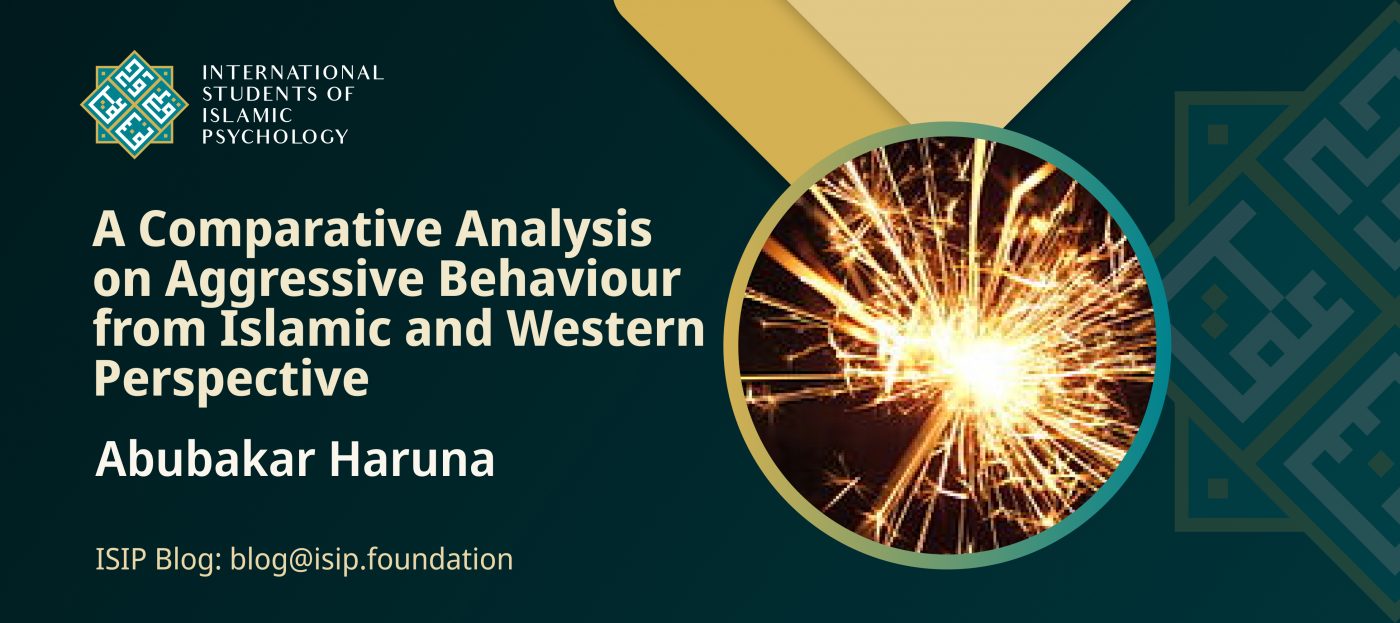
by Abubukar Haruna
Introduction
Aggressive behaviour is a complex phenomenon that has long intrigued scholars and practitioners in the fields of psychology, sociology, and management. In both Islamic and Western societies, understanding and managing aggressive tendencies are critical for maintaining social order, fostering harmonious relationships, and promoting organisational effectiveness.
This publication aims to explore the multifaceted nature of aggressive behaviour through the lens of both Islamic and Western perspectives on management. While these perspectives may diverge in their theoretical frameworks and cultural contexts, they often converge on fundamental principles related to human behaviour and societal norms.
In Islamic management philosophy, aggression is viewed within the broader context of spiritual and moral development. Concepts such as ‘ghira’ (honourable jealousy), ‘sabr’ (patience), and ‘taqwa’ (God-consciousness), offer unique insights into the management of aggressive impulses and the cultivation of virtuous conduct in organisational settings.
Contrastingly, Western management theories often emphasised psychological constructs such as assertiveness, conflict resolution, and emotional intelligence in addressing aggressive behaviour. These frameworks draw from empirical research and practical interventions aimed at mitigating conflict, enhancing communication, and fostering a positive organisational climate.
By juxtaposing Islamic and Western perspectives on aggressive behaviour, this publication seeks to facilitate a deeper understanding of the cultural, philosophical, and practical dimensions inherent in managing aggression within diverse organisational contexts. Through critical analysis and synthesis of these perspectives, scholars and practitioners can glean valuable insights and strategies for promoting peace, co-operation, and productivity in the workplace.
Integrating Islamic and Western Perspectives on the Management of Aggressive Behaviour: A Scholarly Synthesis
Aggressive behaviour poses significant challenges in organisational settings, impacting productivity, morale, and overall well-being. Both Islamic and Western management philosophies offer valuable insights into understanding and addressing aggressive tendencies among individuals. This publication aims to explore the integration of these perspectives, drawing upon scholarly research and theoretical frameworks from both traditions.
Islamic Perspectives on Aggression Management:
In Islamic management philosophy, aggression is understood within the broader context of spiritual development and moral conduct. The Quran and Hadith provide guidance on managing aggressive impulses through concepts such as ‘ghira’ (honourable jealousy), ‘sabr’ (patience), and ‘taqwa’ (God-consciousness) (Al-Asfour, 2010). Scholars like Mohammad H. Jamal and Shah Alam have emphasised the importance of fostering a culture of empathy, justice, and ethical leadership to mitigate aggression in organisational settings (Jamal & Alam, 2015).
Western Approaches to Aggression Management:
Western management theories draw upon psychological constructs such as assertiveness, conflict resolution, and emotional intelligence to address aggressive behaviour (Baron & Richardson, 1994). The work of scholars like Daniel Goleman on emotional intelligence and Thomas-Kilmann on conflict management styles provides practical frameworks for understanding and managing aggression in diverse workplace contexts (Goleman, 1995; Thomas & Kilmann, 1974).
Integration of Perspectives:
Integrating Islamic and Western perspectives on aggression management requires a nuanced understanding of cultural contexts and philosophical foundations. Scholars like Ali Abbas and Rafik Beekun have advocated for a holistic approach that synthesises Islamic ethical principles with contemporary management practices (Abbas & Beekun, 2008). By incorporating elements of both traditions, organisations can develop comprehensive strategies for fostering a culture of respect, cooperation, and conflict resolution.
Conclusion
The integration of Islamic and Western perspectives offers a rich tapestry of insights and strategies for managing aggressive behaviour in organisational settings. By recognising the complementarity of these traditions and leveraging their respective strengths, scholars and practitioners can navigate the complexities of human behaviour with wisdom, compassion, and effectiveness.
